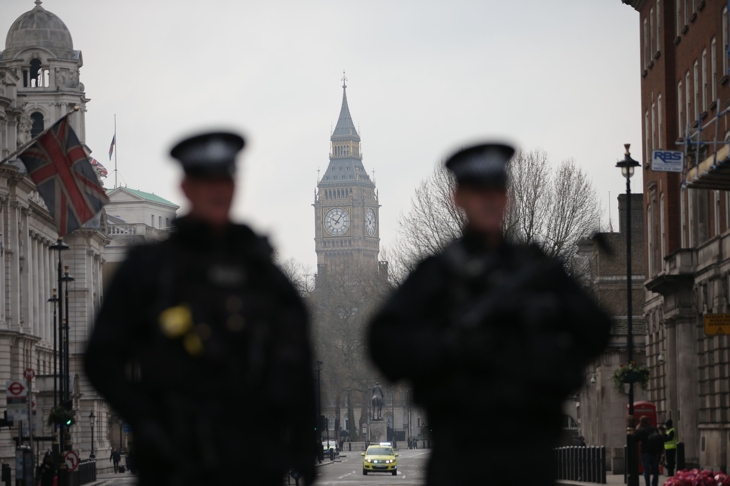Westminster is agog with whispers about who the Tory MPs are on a list of men and women alleged to be guilty of inappropriate sexual behaviour, sexual harassment and worse. Some names have been circulating for years, with many women across the Parliamentary Estate saying they have their own story about this MP or that minister. So why is it only now that there’s a threat to make the list public?
The Harvey Weinstein allegations have prompted women – and men – in every industry to realise that they don’t have to just grin and bear bad behaviour as though it’s just an unfortunate side-effect to having your dream job. The fact that there is a WhatsApp group of women who are co-ordinating their allegations is also a sign that people are starting to see that it’s better to stick your head above the parapet as a group, rather than individually, only to get shot down by the sort of people who dismiss any allegation as ‘harmless fun’, a ‘compliment’, or ‘hysteria’.
That casual attitude towards behaviour that is so obviously far more menacing and uncomfortable than clumsy come-ons is what has helped perpetuate the culture of inappropriate behaviour at Westminster. It focuses on blaming the victim for where they were, their failure to kick a Cabinet minister in the shins at the very moment he did something inappropriate, and their decision to complain rather than just laugh off the humiliation and invasion of personal space. It helps perpetrators to feel that they will get away with anything they want, from using demeaning language to show female colleagues that they don’t view them as equal to the men who were elected alongside them, to launching themselves at a researcher.
Of course, there are consensual relationships which take place between MPs and their researchers. In 2016, 39 year-old Tory MP Justin Tomlinson announced that he was in a relationship with his 25-year old aide Kate Bennett, for instance. There are MPs who are publicly known to have had affairs with one another. The cynics claim that there is a fine, often non-existent line between inappropriate behaviour and someone just hoping they might have a chance with a colleague who they like. The difference is quite clear: it’s when someone invades someone else’s personal space without their permission and without it being simple for their victim to tell them to stop without any fear. A friend who lunges drunkenly at another friend has no relationship of power which would stop that friend from telling them to sober up and behave. A minister who does so to a young researcher or political candidate holds far more power. When someone fears that more is at stake than just the blushes of a clumsy politician who they’ve sent packing, that’s when we’ve crossed the line. The people who operate on the other side of that line do so having made a calculation that they have sufficient power over their victim for them to get away with whatever they’re up to – and to do it again with someone else.
Westminster is the perfect Petri dish for bad cultures, anyway. It involves people living double lives by necessity, with their constituency and their parliamentary work meaning they must spend one half of their week in one place, and the other half elsewhere. It involves long hours, plenty of booze, insecure bigwigs and nervous young types anxious to make their mark in a powerful world. If the members of a group reinforce one another’s bad behaviour rather than challenge it, then we have a culture. It was the same with the expenses scandal: everyone knew, but what was the point in challenging it? There was even a neat justification for MPs furnishing their homes at great expense, only to switch the designation so they could do the same to another: the public wouldn’t let them be paid what they deserved, so this was an informal part of their remuneration package. Now there are neat justifications for inappropriate sexual behaviour: he’s lonely, he’s just a clumsy old man who doesn’t see how the times have changed, she shouldn’t have let him do it, and it’s just a harmless bit of fun.
Now the Westminster Village is waiting for a threatened big reveal of alleged pests. But this still places all the onus on the victims, who are presumably counting the cost of going public. They have absolutely no confidence that any complaint would be dealt with properly – and why should they, when in the wider world, it is often dealt with poorly, too? To blame Westminster for having a uniquely bad culture is to ignore the wider structures in our society that mean not only are women not believed when they allege abuse, they often have nowhere to turn when they flee it, with refuges turning away 70 women a night. Not only are victims of sex attacks often so ashamed of themselves for something that was not their fault, they are also well aware of the low conviction rates for these crimes: why be the one to humiliate yourself in the dock to see your assailant walk free? At least in the criminal world, victims have the protection of the Sexual Offences Amendment Act 2003, which grants them anonymity. In workplaces and industries, it’s not just the names of the alleged perpetrators that spread like wildfire: it’s the men and women who they behaved inappropriately towards too, often with elaborations about those complainants too.
Abuse, whether sexual or domestic, is all about a perpetrator’s power over their victim. Because of the way our society operates, that means it’s often men abusing women, but there are male victims of both types of behaviour too. Until the perpetrators realise that they do not have any power or safety any more, they will keep going. That’s going to take more than a complaints service and a statement this afternoon in the House of Commons.







Comments